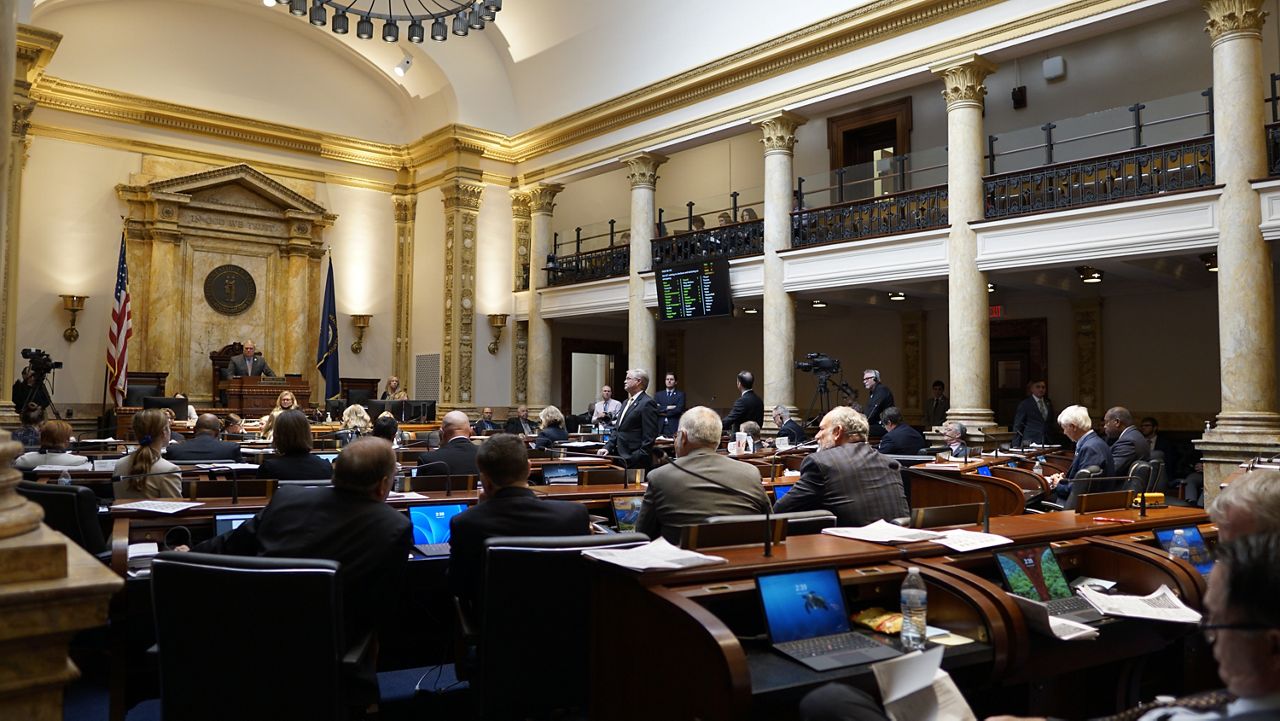FRANKFORT, Ky. — Kentucky lawmakers started advancing an ambitious measure Thursday aimed at stimulating cutting-edge research while promoting teamwork among the state's public universities.
The Senate Education Committee quickly advanced the bill that would create a framework for cross-campus projects, pairing up researchers at various schools. The measure is sponsored by Senate President Robert Stivers, R-Manchester, and is designated as Senate Bill 1, signifying its top-priority status. The proposal goes to the full Senate next and would still need House approval.
The legislation is meant to be a catalyst to stimulate far-reaching research capable of attracting lucrative federal grants and other support while raising Kentucky's research profile. Projects could focus on medical breakthroughs but could build on schools' existing strengths in other types of research as well.
“You can’t catch a fish until you cast something into the water,” Stivers told the committee. “I’ve never seen them jump in my boat. So this is an attempt to go fishing.”
The goal is to reel in research projects capable of improving lives across the Bluegrass State.
By providing state-backed seed funding, the goal is to help nurture the research projects, with the expectation that the work would prove successful enough to attract outside funding.
The bill would establish an endowed research fund administered by the state Council on Postsecondary Education. The council would solicit and review joint funding applications submitted by two or more public universities. It's meant to enhance collaboration among Kentucky schools often seen as competitors.
The council would select five research consortiums to receive funding for an initial five years. Interest earnings from the research fund would be transferred into accounts supporting each project.
“This is precisely what Kentucky needs now to catapult us forward in developing premier research consortiums by banding together, pooling our resources to chart a path to success in Kentucky’s future,” Stivers said in a news release after the committee hearing.
The council would review the performance of each research team to determine whether its funding support should be renewed for up to five more years. If a research team's funding is discontinued, the council would review other applications to fill the vacancy.
Details about state funding for the initiative would be decided in the coming weeks. The Senate is currently working on its version of the next two-year state budget. The final version will ultimately be hashed out by Senate and House negotiators next month. Stivers will be a key participant in those negotiations.
The state's research reputation got a boost last year when the University of Kentucky’s Markey Cancer Center achieved the highest level of recognition from the National Cancer Institute. Its elevated status — putting it among several dozen cancer centers nationally to attain the designation — will bolster research and patient care in a state plagued by some of the nation’s highest cancer rates.



